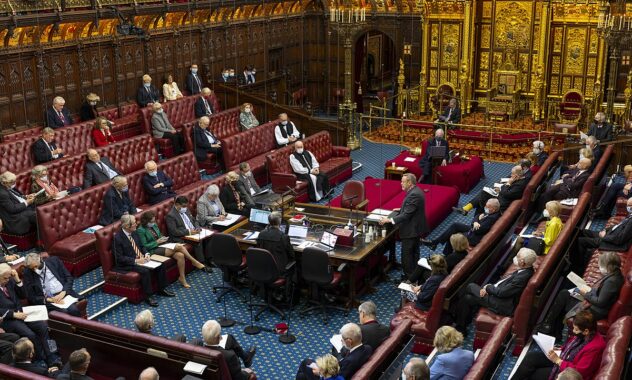Scottish ministers refuse to comply with UK government strike plan
via the BBC

The BBC reports:
Scottish ministers say they will refuse to co-operate with UK government legislation designed to ensure minimum levels of service during strikes.
Holyrood cabinet secretary Neil Gray condemned the “appalling” plan ahead of the King’s Speech at Westminster. The legislation aims to ensure about 40% of rail services will run during strikes. This would apply in Scotland. It would also specify minimum service levels for border security staff in England, Wales and Scotland.
Prime Minister Rishi Sunak said he hoped the proposal, under the Strikes (Minimum Service Levels) Act, would be enacted in time to “stop unions derailing Christmas for millions of people”. The legislation was to be laid in Parliament on Tuesday and will be subject to parliamentary approval.
Mr Gray, cabinet secretary for wellbeing economy, fair work and energy, said: “Ministers strongly oppose any Act that undermines legitimate trade union activity and does not respect fair work principles.
“This is another appalling piece of anti-trade union, anti-worker legislation from Westminster that will harm, not improve industrial relations.”
He called for a “progressive approach” to relations with trade unions, with improved protections for workers.
Mr Gray added:
“The UK government’s introduction of the Minimum Service Levels Act is in direct contradiction to that, ignores the devolution settlement and fails to recognise the authority of the Scottish government in devolved areas.
So we will continue to do all we can to oppose this legislation and will not co-operate with establishing any minimum service orders here.”
He later told BBC Scotland News ministers “will not enforce any minimum service obligations upon employers”. Mr Gray also said that the Scottish government would ” fight” the legislation “as hard as we possibly can”, including in reserved areas.
Under the Strikes (Minimum Service Levels) Act, UK ministers can set minimum service levels for rail, health, fire and education services, as well as border security and nuclear decommissioning. It would give the Scottish government the power to enforce minimum service levels in devolved areas – fire, health and education – but Holyrood ministers have indicated they will not exercise this option.
However, Scottish government ministers would not have a say on how the rules apply to workers in devolved areas – cross-border or UK-wide rail services, border security and nuclear decommissioning. The rules would allow employers to issue work notices to unions, identifying who is required to work during industrial action. There would be no automatic protection from unfair dismissal for an employee who is told to work through a notice but chooses to strike.
The UK government said regulations will mean the equivalent of 40% of normal timetables operating as normal. Unspecified “priority routes” would also be kept open, the government said. Although Scotland has its own nationalised rail network, ScotRail, services north of the border can be affected by UK-wide Network Rail strikes.







